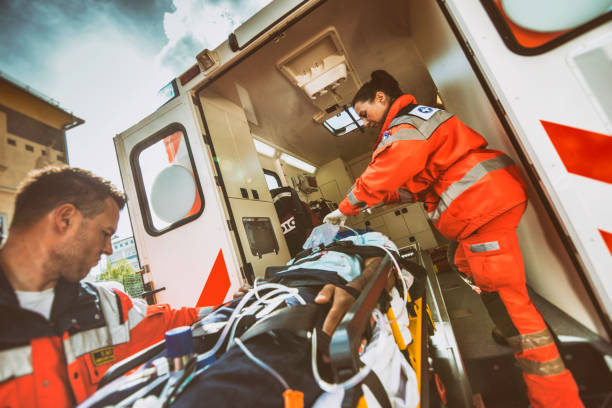The Essential How-To On Coping With The Aftermath Of A Car Crash Catastrophic Injury
4 Mins Read
Published on: 06 December 2023
Last Updated on: 06 September 2024

toc impalement
Experiencing a catastrophic injury as a result of a car crash is a traumatic event that can have profound and lasting effects on an individual’s life. This guide offers necessary insights into coping with the aftermath of such injuries.
Immediate Steps After A Catastrophic Injury
In the immediate aftermath of a catastrophic injury resulting from a car crash, it is crucial to prioritize medical attention. Emergency services should be contacted promptly, and individuals with injuries should not attempt to move unless it is safe. Quick medical intervention is vital for minimizing long-term damage and improving the chances of a more effective recovery.
Seeking Specialized Medical Care
Catastrophic injuries often necessitate specialized medical care. It is essential to consult with healthcare professionals with expertise in treating severe injuries, such as trauma surgeons, neurologists, or orthopedic specialists. Collaborating with a multidisciplinary medical team ensures a comprehensive approach to addressing the complex aspects of catastrophic injuries.
Legal Considerations And Advocacy
Handling the aftermath of a serious injury from a car crash means dealing with legal stuff. It’s important to connect with a Miami car accident Lawyer who knows about severe injuries. They help you understand your rights and work to get you the support you need for medical bills, ongoing care, and other costs. These legal pros are like advocates, ensuring your rights are safe and you get the help you deserve.
Emotional Impact And Mental Health Support
Beyond the physical trauma, catastrophic injuries can have a profound emotional impact on individuals. Coping with the aftermath involves acknowledging and addressing the emotional toll. Seeking mental health support from therapists, counselors, or support groups is a critical component of the recovery process.
Emotional well-being is intertwined with physical recovery; addressing both aspects is essential for a holistic approach.
Building A Support System
Dealing with what happens after a catastrophic injury is not a solitary journey. Building a strong support system is essential for emotional well-being. This includes family, friends, support groups, and healthcare professionals who provide encouragement, understanding, and practical assistance throughout recovery.
Navigating The Rehabilitation Process
Rehabilitation plays a pivotal role in the recovery journey after a catastrophic injury. Working closely with physical, occupational, and rehabilitation specialists is essential. These professionals tailor rehabilitation programs to address specific needs. They focus on restoring functionality and improving the individual’s quality of life.
Financial Planning And Resources
Catastrophic injuries often incur substantial financial burdens. Establishing a comprehensive financial plan is essential to address current and future expenses. This may include medical bills, rehabilitation costs, modifications to living spaces, and potential long-term care. Exploring available resources, such as disability benefits, insurance coverage, or assistance programs, can provide valuable support.
Maintaining Long-Term Health
The aftermath of a catastrophic injury necessitates a focus on maintaining long-term health. This involves ongoing medical care, rehabilitation, and proactive measures to prevent complications. Regular check-ups with healthcare professionals, adherence to prescribed treatments, and a commitment to a healthy lifestyle contribute to sustained well-being.
Adaptive Living Arrangements
Adapting living spaces to accommodate the unique needs of individuals with catastrophic injuries is a crucial consideration. This may involve home modifications, such as ramps, widened doorways, or accessible bathrooms. Creating an environment that supports independence and safety is paramount for individuals adjusting to life after a catastrophic injury.
Adaptive Technology And Assistive Devices
Incorporating adaptive technology and assistive devices into daily life can significantly enhance the independence and functionality of individuals with catastrophic injuries. These tools range from mobility aids to advanced technologies designed to facilitate communication and improve overall quality of life. Working with rehabilitation specialists can help identify and implement the most beneficial assistive solutions.
Pursuing Vocational Rehabilitation
Returning to work or pursuing vocational rehabilitation is a key aspect of rebuilding life after a catastrophic injury. Vocational rehabilitation programs can assist individuals in developing new skills, exploring career options, and re-entering the workforce. All this is done in a capacity that aligns with their abilities and aspirations.
Engaging In Recreational Therapy
Recreational therapy plays a vital role in enhancing the overall well-being of individuals. Participating in recreational activities tailored to individual abilities fosters a sense of accomplishment, social connection, and enjoyment. Recreational therapists work with individuals to find suitable activities. These will positively affect their physical and emotional health.
Move Forward With The Proper Information
Coping with the aftermath of a car crash catastrophic injury is a multifaceted process that requires a strategic approach. Individuals and their support networks must navigate physical, emotional, and financial challenges. By seeking specialized care, legal advocacy, and fostering a robust support system, survivors can move forward with resilience and rebuild their lives after a catastrophic injury.
Read Also:


















Comments Are Closed For This Article